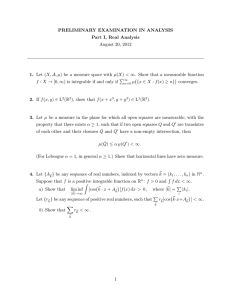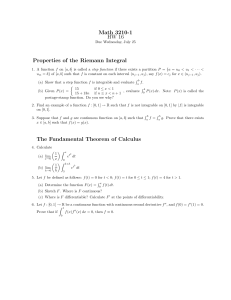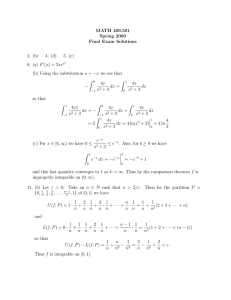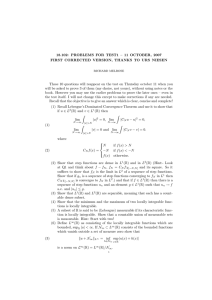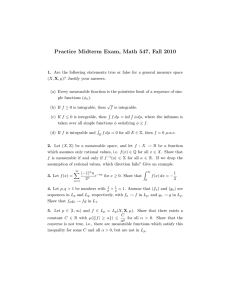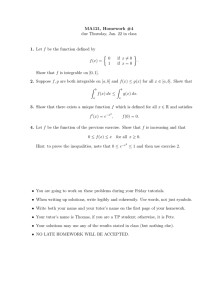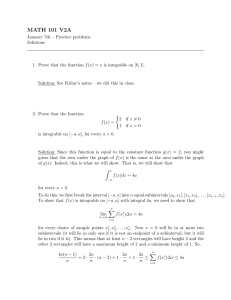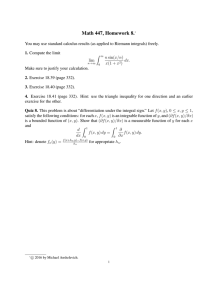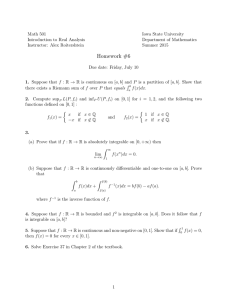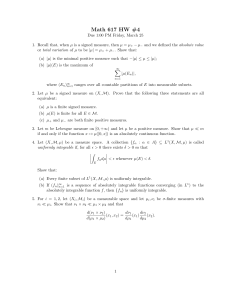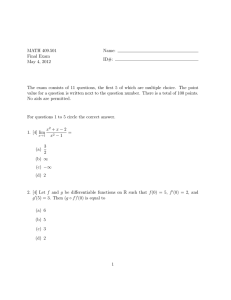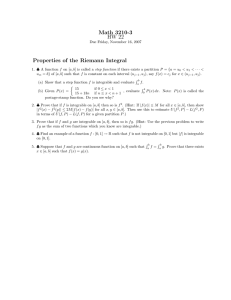Real Analysis
advertisement
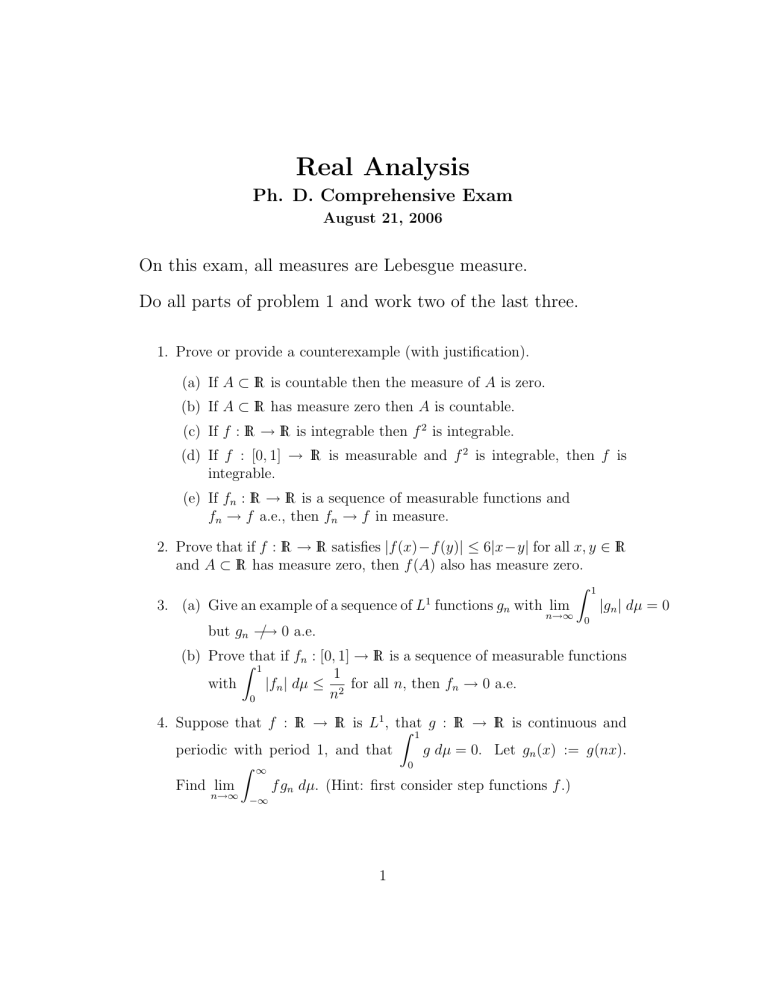
Real Analysis Ph. D. Comprehensive Exam August 21, 2006 On this exam, all measures are Lebesgue measure. Do all parts of problem 1 and work two of the last three. 1. Prove or provide a counterexample (with justification). (a) If A ⊂ R l is countable then the measure of A is zero. (b) If A ⊂ R l has measure zero then A is countable. (c) If f : R l →R l is integrable then f 2 is integrable. (d) If f : [0, 1] → R l is measurable and f 2 is integrable, then f is integrable. (e) If fn : R l →R l is a sequence of measurable functions and fn → f a.e., then fn → f in measure. 2. Prove that if f : R l →R l satisfies |f (x)−f (y)| ≤ 6|x−y| for all x, y ∈ R l and A ⊂ R l has measure zero, then f (A) also has measure zero. Z 1 1 |gn | dµ = 0 3. (a) Give an example of a sequence of L functions gn with lim n→∞ but gn −→ / 0 a.e. 0 (b) ProveZthat if fn : [0, 1] → R l is a sequence of measurable functions 1 1 with |fn | dµ ≤ 2 for all n, then fn → 0 a.e. n 0 4. Suppose that f : R l → R l is L1 , that l → R l is continuous and Z 1 g : R periodic with period 1, and that g dµ = 0. Let gn (x) := g(nx). 0 Z ∞ Find lim f gn dµ. (Hint: first consider step functions f .) n→∞ −∞ 1
